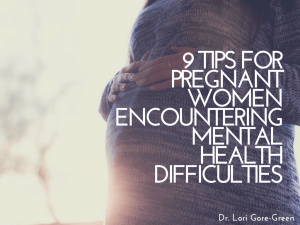 It’s important to realize that due to the different way in which female brains work, some things can affect a woman’s mental health in interesting ways. Below, you will find seven exciting things that can affect a woman’s psychological health, how it affects it, and why.
It’s important to realize that due to the different way in which female brains work, some things can affect a woman’s mental health in interesting ways. Below, you will find seven exciting things that can affect a woman’s psychological health, how it affects it, and why.
- Eat Your Veggies
Eating your vegetables and fruits every day can do more for you than promote a healthy weight. The University of Sydney released a study demonstrating that consuming 3-4 daily servings of fruits and vegetables can reduce psychological stress, depression, and anxiety in women.
- Decorate With Flowers
While fake flowers are quite lovely and possess incredible longevity, freshly cut flowers will provide aromatherapy for you and will also improve your mental health in many ways. A Harvard study showed that placing freshly cut flowers in your home can chase away anxiety, increase your energy levels, and improve your mood and enthusiasm.
- A Warm Shower
If you suffer from stress or insomnia, taking a warm shower for 10 minutes before bedtime can help you sleep better. The sound and feel of the shower are relaxing to your senses. Additionally, your warm body entering a cold room causes a drop in your body temperature, telling your brain that it’s time to sleep.
- Bake And Cook More
Although considered more of a chore by most people, cooking and baking are quite therapeutic in many ways. Cooking and baking provide a small project with a short time frame that can cause a person’s mind and thinking to focus on just the tasks at hand, help to reduce stress and anxiety. Completing these small, meaningful projects every day can also help you develop a feeling of accomplishment.
- Puppy Love Is Real
Many people have already realized that petting or interacting with a dog can make them feel better, but they aren’t sure why. Researchers have determined that engaging with dogs and puppies increases your serotonin levels. This increased serotonin promotes reduced stress, anxiety, and depression.
- Blanket Anxiety
Anxiety can keep you awake at night and prevent restful sleep. A study revealed that wrapping yourself in a weighted blanket can help reduce stress and promote a restful sleep since the weight mimics a hug which signals a feeling of safety and comfort.
- Always Carry Earplugs
If you’re someone who becomes annoyed by certain noises, it would be beneficial for you to carry around a spare set of earplugs. Use them anytime you encounter an annoying noise. Those with high noise annoyance were found to be twice as likely to develop depression and anxiety, according to a German survey.








